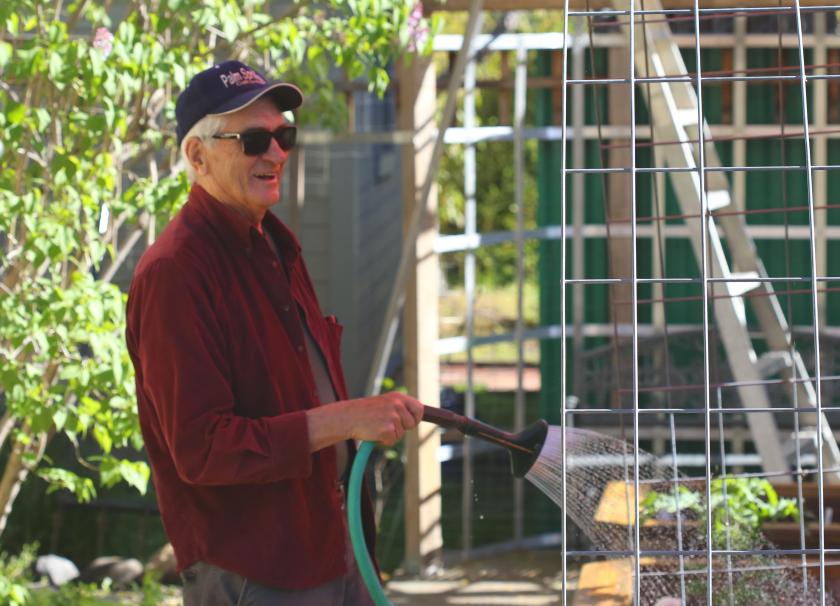
The Co-op's "Secret Garden"
Did you know the Co-op employees have a small garden on our campus? Planning and management falls on our fantastic Co-op volunteer: Henry Herting.
Below, Henry shares some background on the garden, what it’s used for, and some additional tales from over the years.
Originally, the need for a kitchen garden arose from having a kitchen classroom in which culinary classes were being held. Visiting chefs have always been invited to use the garden for any ingredients they may have forgotten or items they could use as garnish for their dishes.
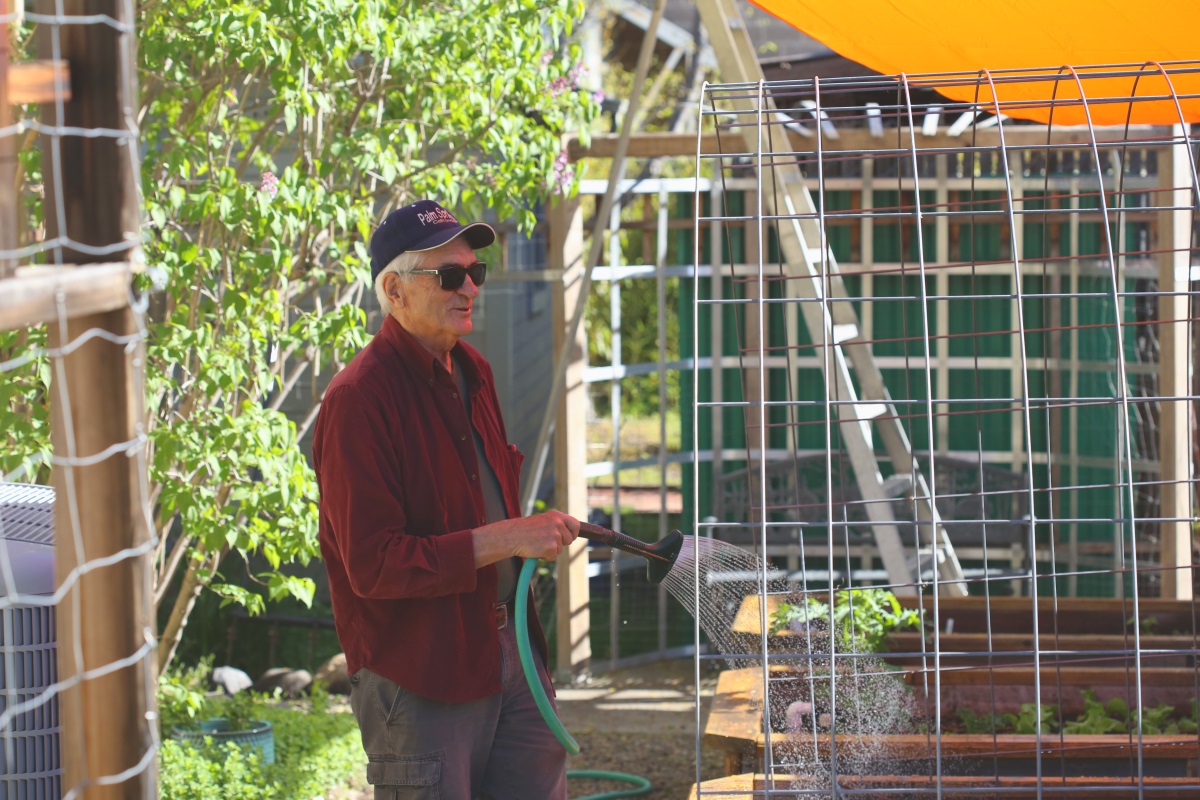
Over the years as the garden has improved in amendments, it has taken on its primary purpose as a refuge for AFC employees trying to enjoy a quiet lunch away from the busy activity of the store or as a private place to make a telephone call.
We had to enclose the area with a deer fence as the local deer were gorging themselves on our offerings. There was also a beautiful cat that thought the four raised beds should be used for his purposes only. He has, happily, been chased away by an occasional handful of critter-ridder.
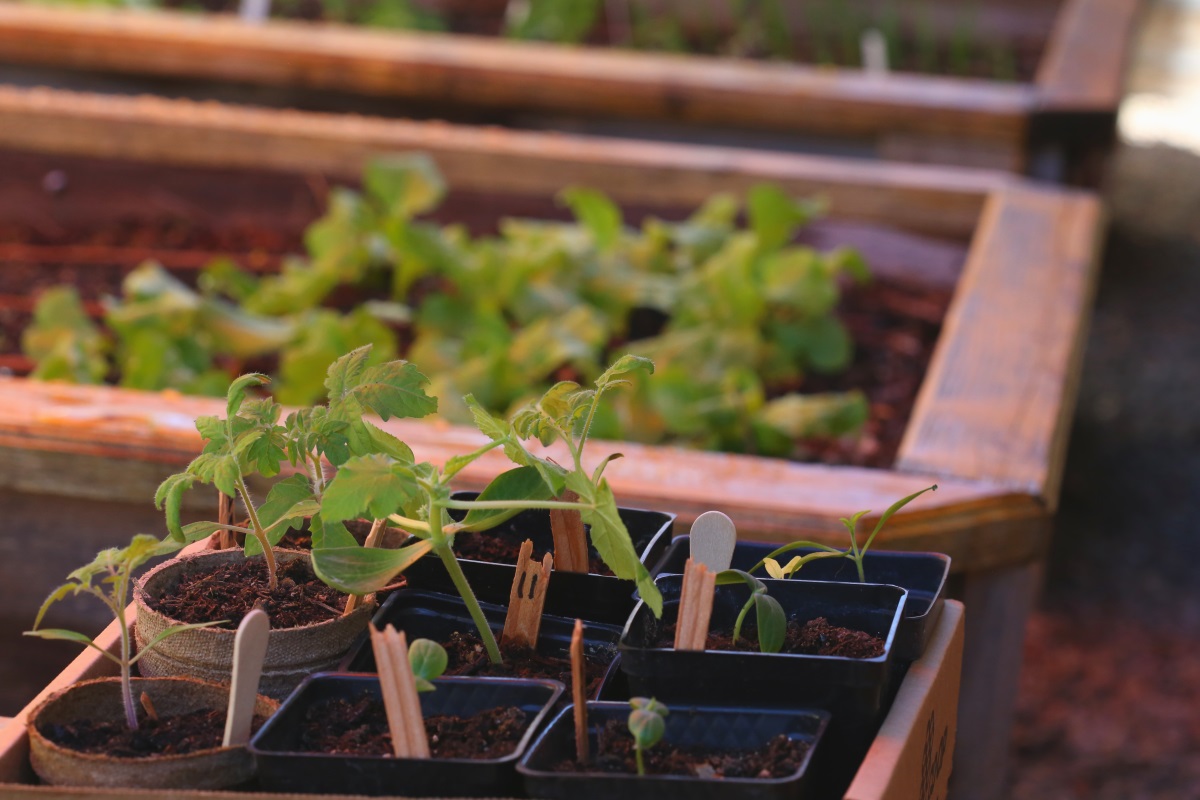
We’ve added seating in the form of cedar rails at the tops of the raised beds and two benches: a rocking bench that we covered with a trellis, and a larger oak bench modeled after the one at the old Eagle Point Grist Mill (which burned to the ground one Christmas morning, taking the bench with it).
We’ve always been charged by the originators of the garden to do everything organically. If we use seeds, they have to be organically raised seed (in our case, from Siskiyou Seeds or Territorial Seeds). If we plant starts, they will be organically grown in organic soil mediums. Even the green paint we’ve added to the big trellis this year is old-time milk paint, appropriate for growing vegetables.
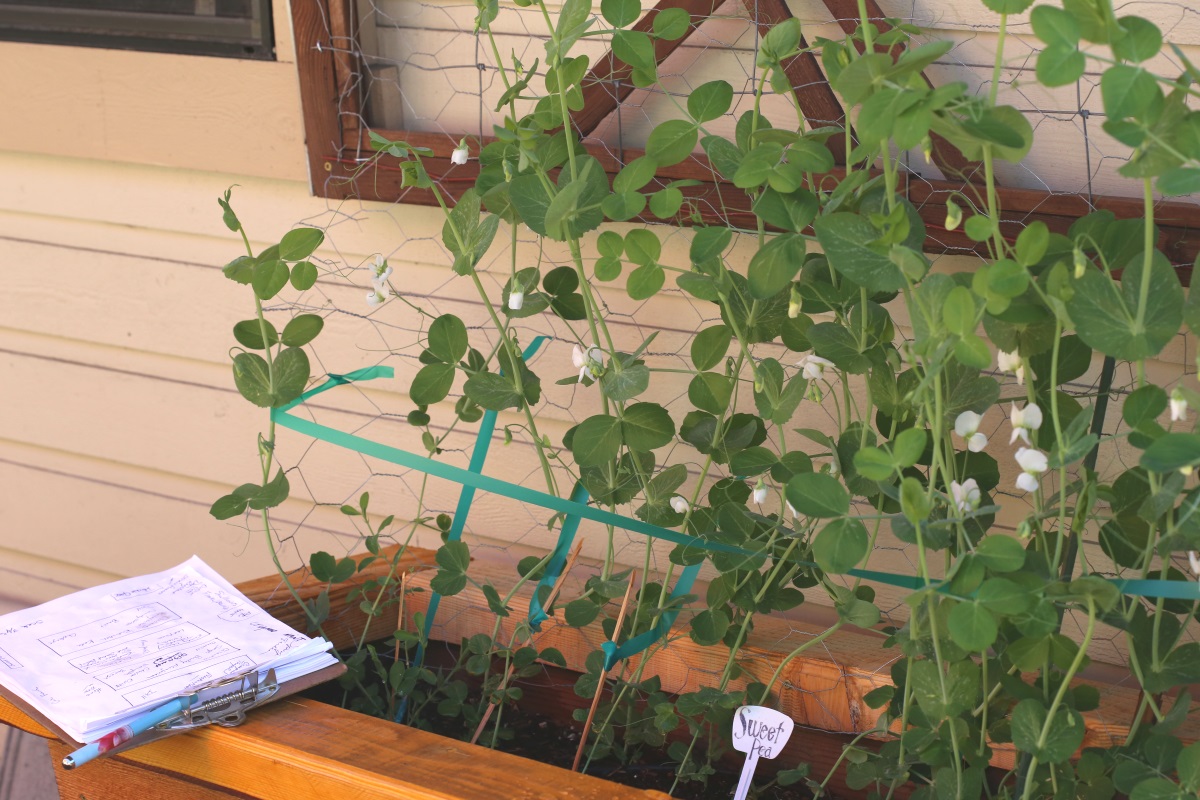
The garden isn’t a smoke break spot either. Plants are living organisms and it has been repeatedly proven do not do well with second hand smoke. They breathe in and out as we do.
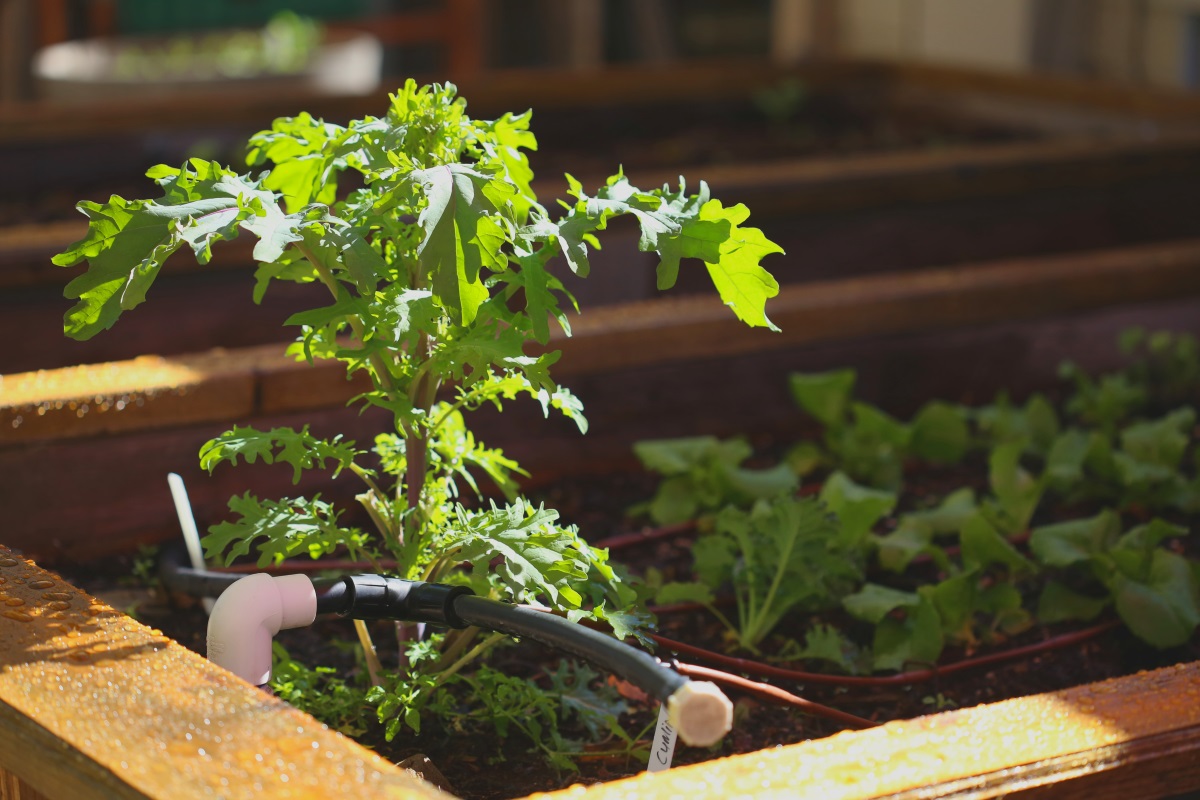
Our big charge in the summer months has always been the Kids’ Camps, happening in late June this year. Currently, we are adding a lot of plants to draw in the pollinators in our quest to become a Certified Pollinator Garden. We hope also to have some ladybugs for the kids to release - it’s an experience that enraptures kids and connects them to the soil food web around them.
More Co-op News

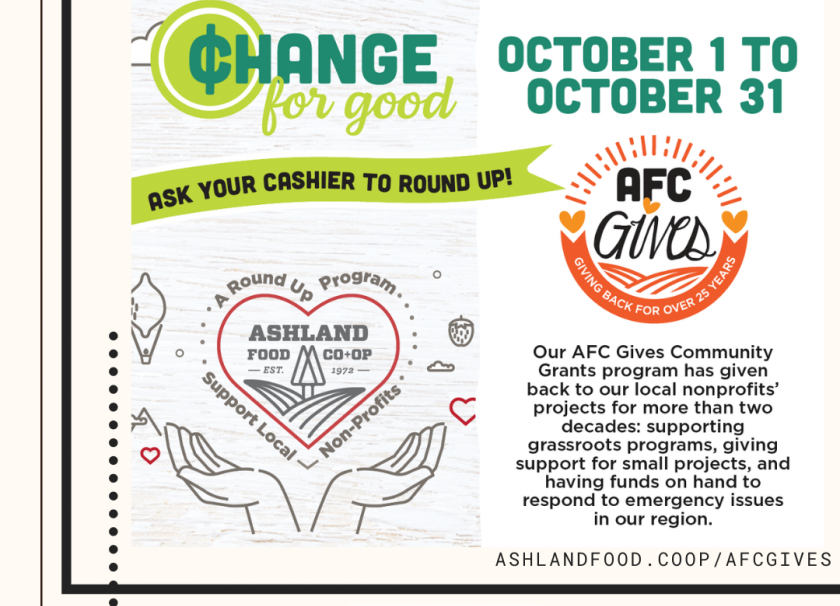
October Change for Good Partner: AFC Gives Community Fund
October's Change for Good Partner is
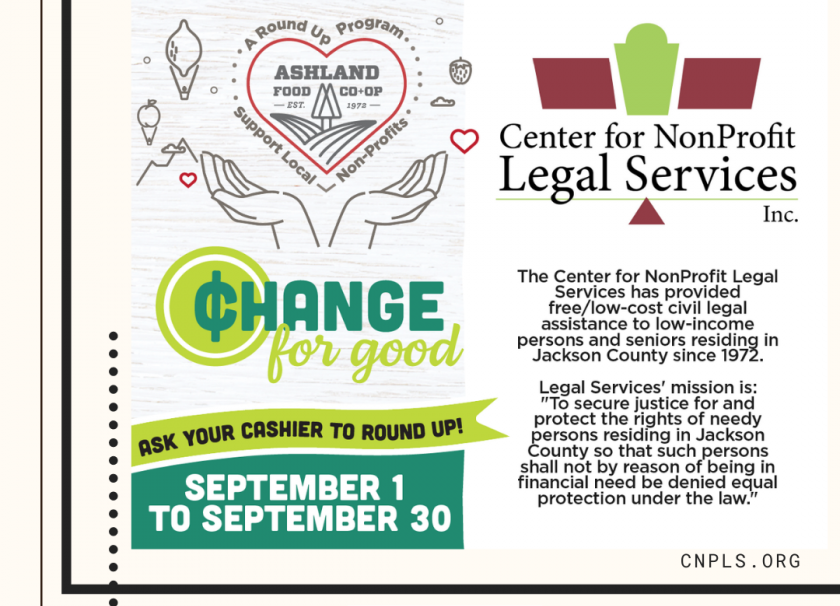
September Change for Good Partner: Center for NonProfit Legal Services
September's Change for Good Partner is
Center for NonProfit Legal Services
The Center for NonProfit Legal Services has provided free/low-cost civil legal assistance to low-income persons and seniors residing in Jackson County since 1972.

August Change for Good Partner: Klamath-Siskiyou Wildlands Center
August's Change for Good Partner is
Klamath-Siskiyou Wildlands Center
(KS Wild)
KS Wild's mission is to protect and restore wild nature in the Klamath-Siskiyou region of southwest Oregon and northwest California.


July Change for Good Partner: Southern Oregon Land Conservancy
July's Change for Good Partner is
Southern Oregon Land Conservancy
Protecting and enhancing precious land in the Rogue River region
to benefit our human and natural communities since 1978
Meet the 1st Street Beet
Welcome to the newly redesigned and reimagined newsletter from the Ashland Food Co-op: 1st Street Beet.
Think of this publication as a resource to know what’s going on in every level of the community: at the co-op, around town, in the region, and on Earth!

June Change for Good Recipient: Our Family Farms
June's Change for Good Recipient is
Our Family Farms, an Oregon 501(c)3 non profit organization, is hard at work educating and inspiring farmers, policy makers and the community at large to support regenerative agricultural practices.
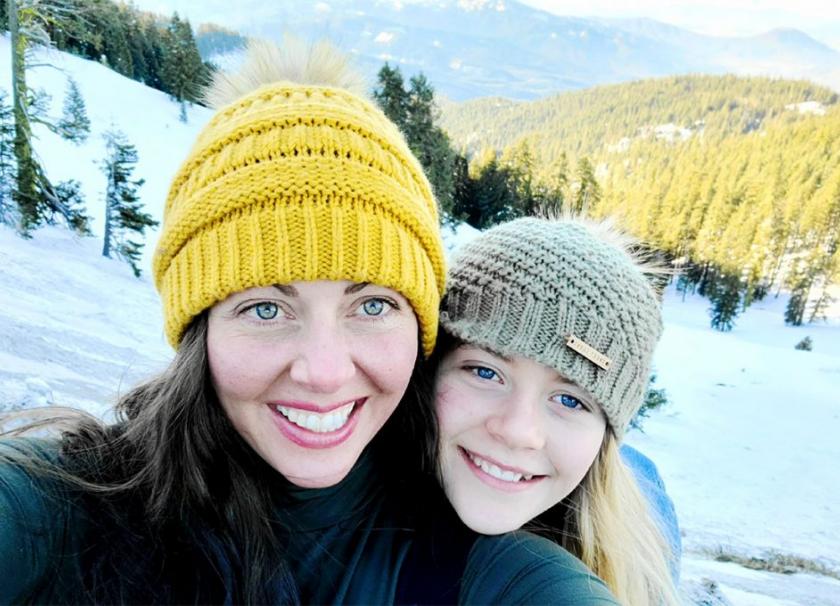
Capiche Conversations: Interview with Tracy Kaiser, Marketing & Education Manager of Ashland Food Co-op
Our own marketing manager, Tracy Kaiser, was interviewed by Melissa L. Michaels for Capiche Conversations.
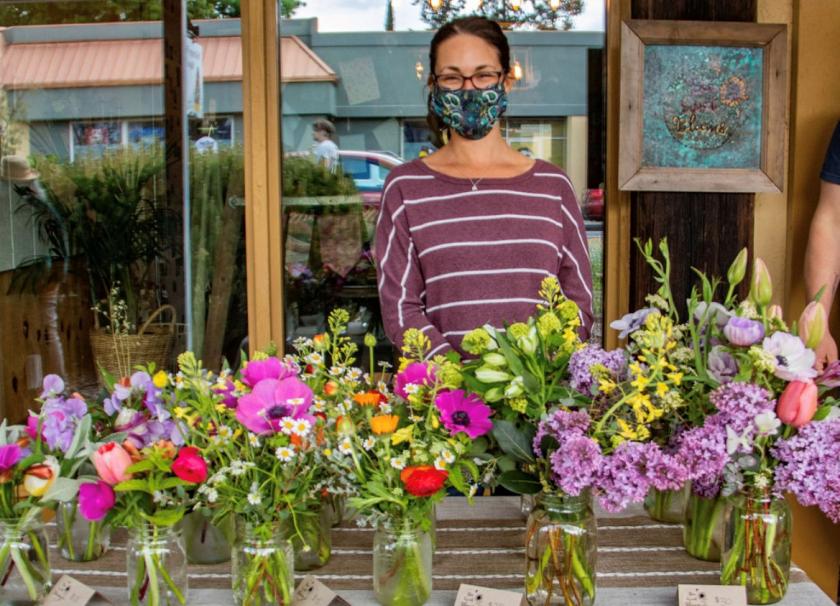
May Day Community Block Party
Photography by Chelsea Whitney Art
On May 1st, several Southern Oregon businesses came together for a block party to provide a space to gather as a community after a rough spell due to the pandemic and fires. The May Day Block Party was hosted on Main St in Phoenix, where the scent of food trucks mingled with artisan goods such as local cheeses, locally farmed flowers, and even fresh-baked pastries.
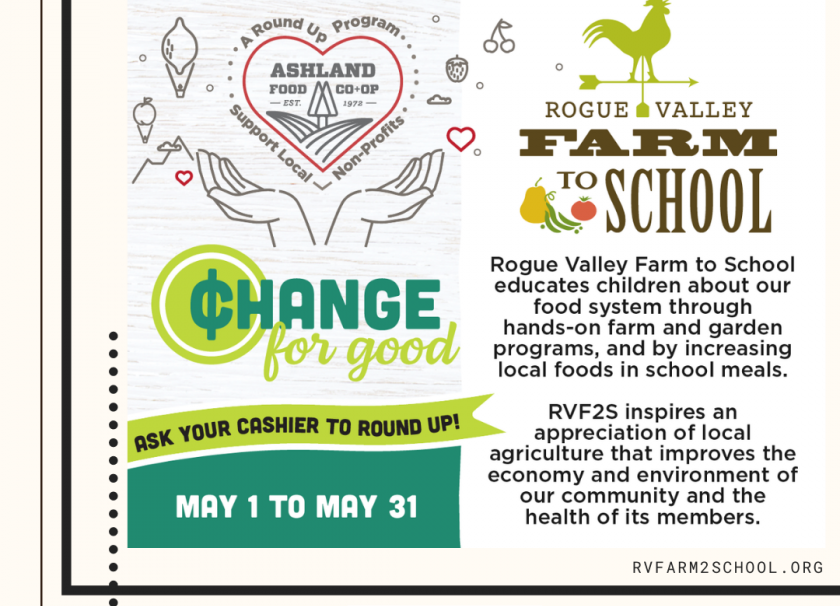
May Change for Good Recipient: Rogue Valley Farm to School
May's Change for Good Recipient is
Rogue Valley Farm to School educates children about our food system through hands-on farm and garden programs, and by increasing local foods in school meals.
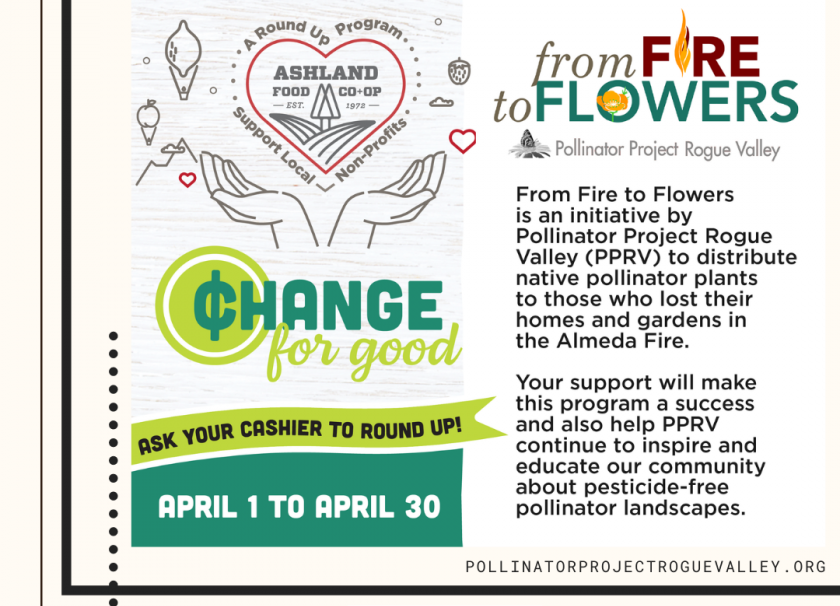
April Change for Good Recipient: Pollinator Project Rogue Valley
April's Change for Good Recipient is
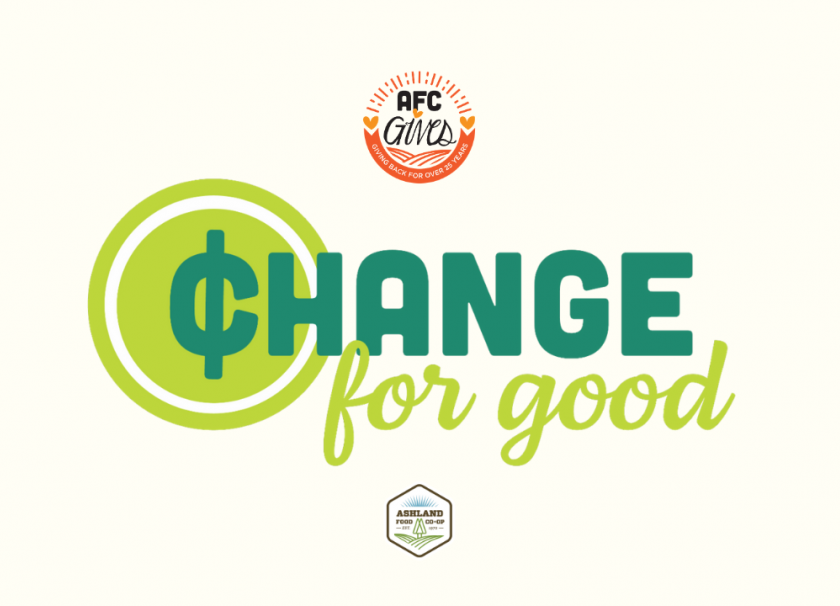
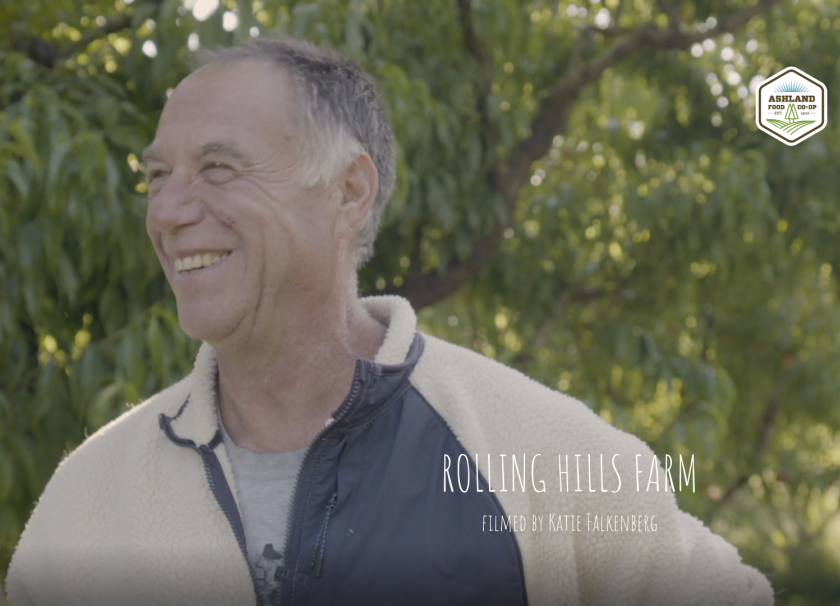
A Visit with Rolling Hills
Visit Rolling Hills Farm and learn more about owner Dave Belzberg, who the Ashland Food Co-op is so honored to partner with for more than thirty five years.
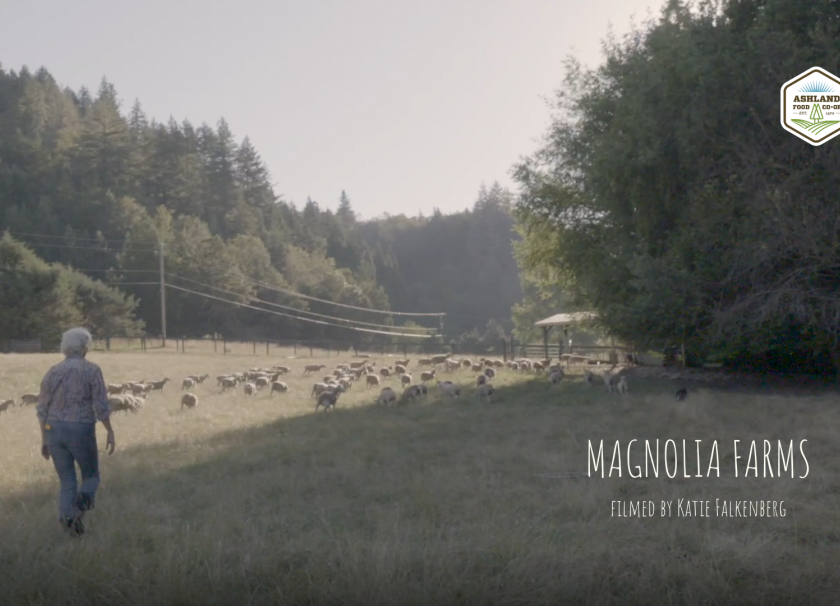
A Visit with Magnolia Farms
Visit Magnolia Farms and learn more about owner Elissa Thau, who the Ashland Food Co-op is so honored to partner with for more than twenty years.

